How to Sync a Digital Planner with Google Calendar for Easy Management
Feeling swamped by scattered schedules and missed appointments? Syncing your digital planner with Google Calendar could be the time-saving fix you need.
Sync your digital planner with Google Calendar by choosing a compatible app, linking it with your Google account, and enabling calendar permissions to ensure real-time updates across all devices.
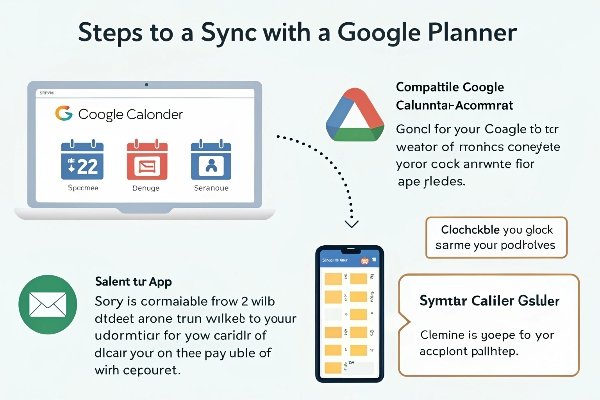
A few years ago, I constantly missed family events or double-booked work meetings. Syncing my planner with Google Calendar changed everything. Now, no matter which device I’m using, my day is always in order. In this guide, I’ll show you exactly how to do it—step by step.
Choosing the Right Digital Planner for Syncing?
Not all digital planners can talk to Google Calendar. Choosing the right one makes everything smoother.
Pick a digital planner with strong integration support for Google Calendar, like Microsoft Outlook or Artful Agenda, to ensure seamless syncing across devices.
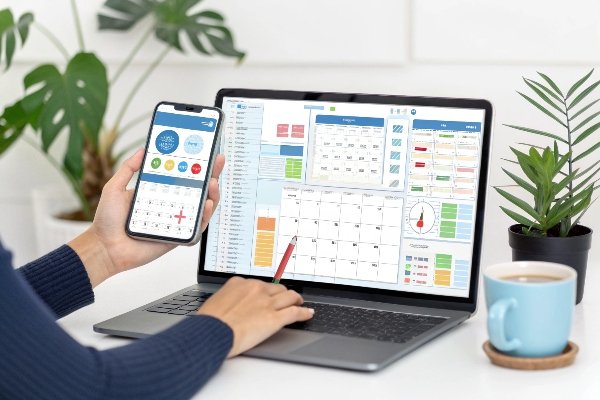
I’ve tried plenty of planner apps over the years, and the ones that integrate well with Google Calendar always save the most time. You should look for apps with:
Features to Look For:
- Google Calendar integration
- Event and task creation
- Notifications
- Multi-device support (iOS, Android, Web)
- Recurring tasks and reminders
Here’s a simple table comparing popular options:
| App Name | Platforms | Integration Type | Standout Features |
|---|---|---|---|
| Microsoft Outlook | iOS, Android, Web | Two-way | Email + Calendar sync |
| Artful Agenda | iOS, Android, Web | Two-way | Stylish layout, Google Calendar sync |
| GoodNotes | iOS | One-way | Handwritten notes, visual planning |
| Notability | iOS | One-way | Note-taking with audio, light planning |
Pick based on your workflow. If you use a stylus often, GoodNotes is great. If you like color coding, Artful Agenda works well.
Linking Your Digital Planner to Google Calendar
The connection setup is simple, but getting it right matters for real-time updates.
To link your digital planner, open settings in the app, choose Google Calendar integration, log in, and allow full access to your calendar.
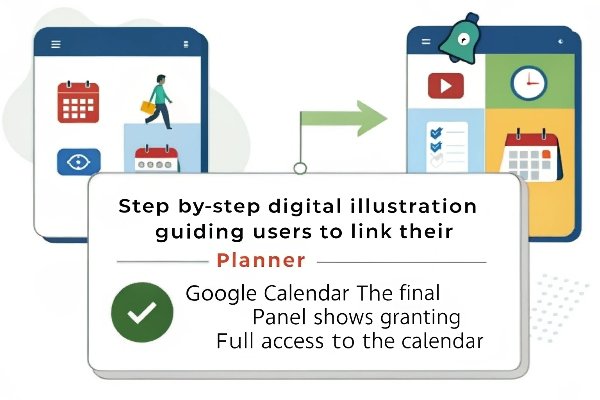
The exact steps may differ depending on your app, but the flow usually looks like this:
- Open your planner app
- Go to the integration or account settings
- Select “Google Calendar” or “Add Calendar Account”
- Log in with your Google account
- Grant all requested permissions
- Choose which calendars to sync—personal, work, family, etc.
Make sure to give full permission, especially for editing and reading events. That’s how the two systems stay in sync.
Syncing Events, Tasks, and Reminders
Once connected, syncing should be automatic. But knowing how it works helps avoid surprises.
Most planner apps sync both ways with Google Calendar, letting you create or update events in either tool and see them everywhere.
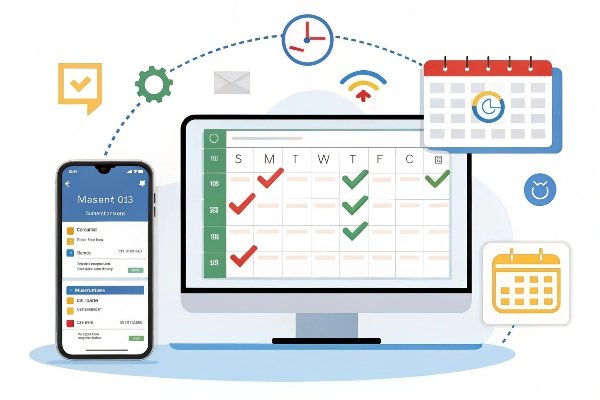
Every Monday, I plan out my week using my digital planner. Those tasks show up in Google Calendar instantly, which keeps my phone notifications accurate. Here’s how syncing typically works:
Syncing Basics:
- Two-Way Syncing: Updates from your planner go to Google Calendar, and vice versa.
- Real-Time Sync: Most apps update instantly when connected to Wi-Fi.
- Conflicts: If two events are edited differently in both tools, one version may overwrite the other.
To avoid sync issues:
- Always double-check the synced event before important meetings.
- Only edit in one place when possible.
- Refresh or reopen the app if updates seem delayed.
Maximizing Productivity with Features?
Syncing is just the start. To really boost productivity, you need to use features both tools offer.
Use reminders, color coding, recurring tasks, and calendar filters to keep your schedule clear and organized.
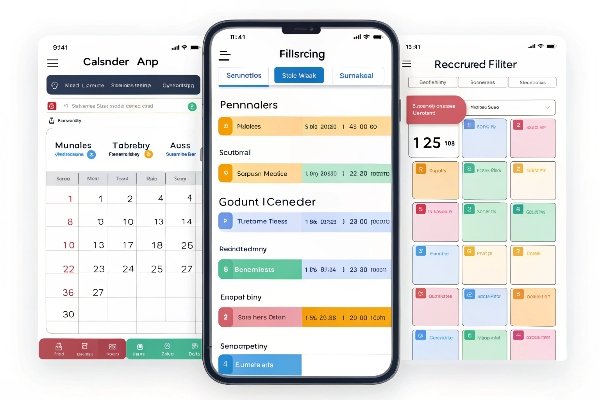
Once I started using color codes—blue for work, green for family—I could glance at my calendar and instantly understand my day. Here are a few other tricks:
Useful Features:
- Reminders: Set alerts for both planner tasks and Google events
- Recurring Events: Automate weekly or monthly tasks
- Calendar Filters: Show/hide calendars for different views (e.g., hide family calendar during work)
- Multi-Device Sync: Access the same calendar on your phone, tablet, or laptop
Here’s an example setup:
| Type | Feature | Example |
|---|---|---|
| Work | Color-coded events | All work tasks in blue |
| Personal | Recurring tasks | Daily walk reminders |
| Family | Shared calendar | Kids’ school calendar shared with spouse |
| Health | Reminders | Dentist appointment alert at 9 AM |
Using these features together builds a powerful and flexible system.
Troubleshooting Sync Issues
Sometimes syncing breaks down, and it’s not always obvious why.
Common sync problems include delayed updates or missing events. Restarting the app, checking permissions, or re-syncing usually fixes them.
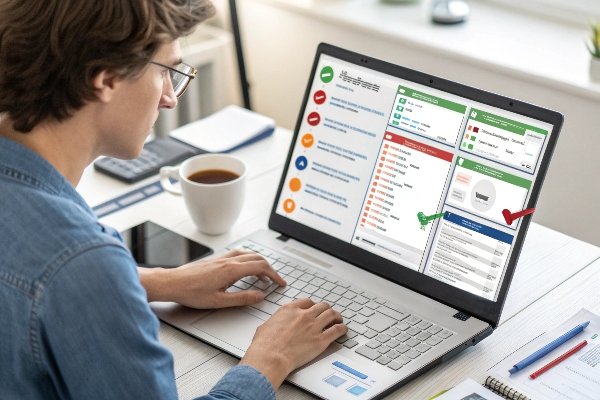
A few months ago, I noticed some of my Google events weren’t showing in my planner. Turned out, I had unchecked the “Work” calendar. Here’s how to handle similar issues:
Common Problems:
- Events not syncing: Try refreshing the app or checking your internet.
- Permissions error: Go to your device settings > App > Permissions and ensure calendar access is allowed.
- Old version: Update both apps to the latest version.
- Manual Sync: Most apps have a “Sync Now” button in settings if automatic syncing fails.
If all else fails, disconnect and reconnect your Google Calendar in the app’s settings.
Conclusion
Syncing your digital planner with Google Calendar helps you stay organized, save time, and manage your life better.
Ready to simplify your schedule and boost productivity? Visit www.techfamilysolution.com or contact Luna Wang at techfamilysolution@gmail.com for tailored digital planning solutions.
